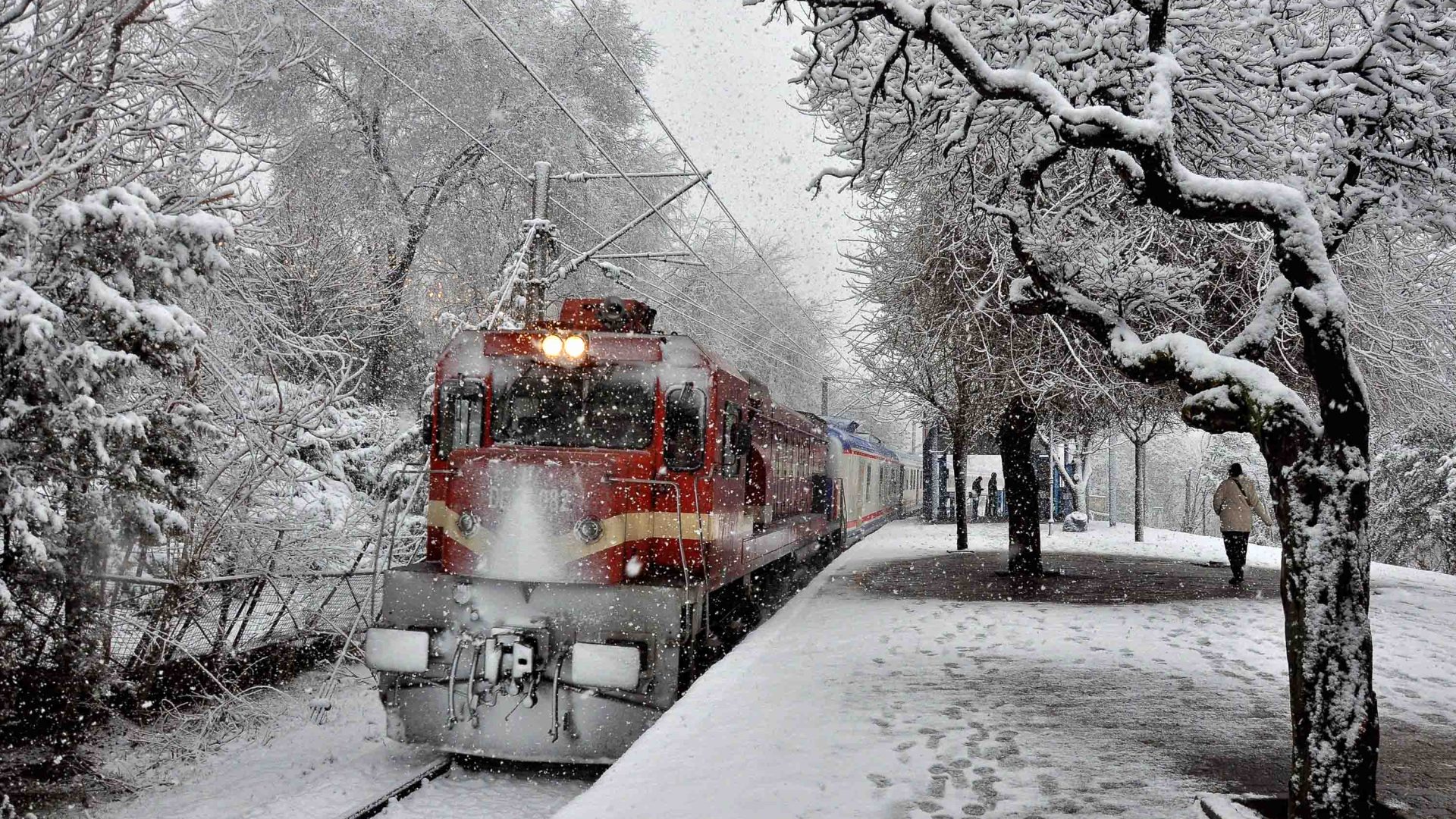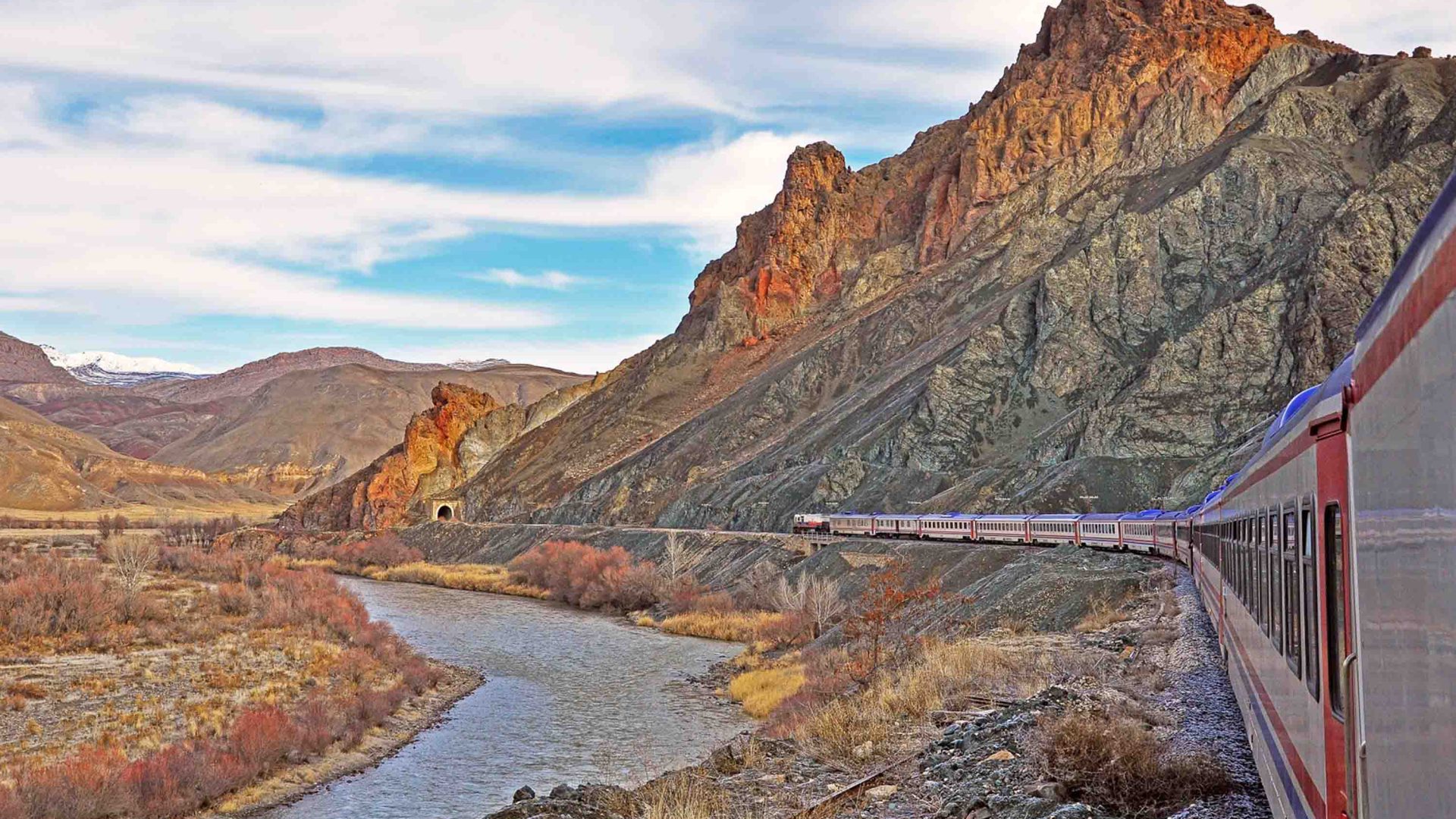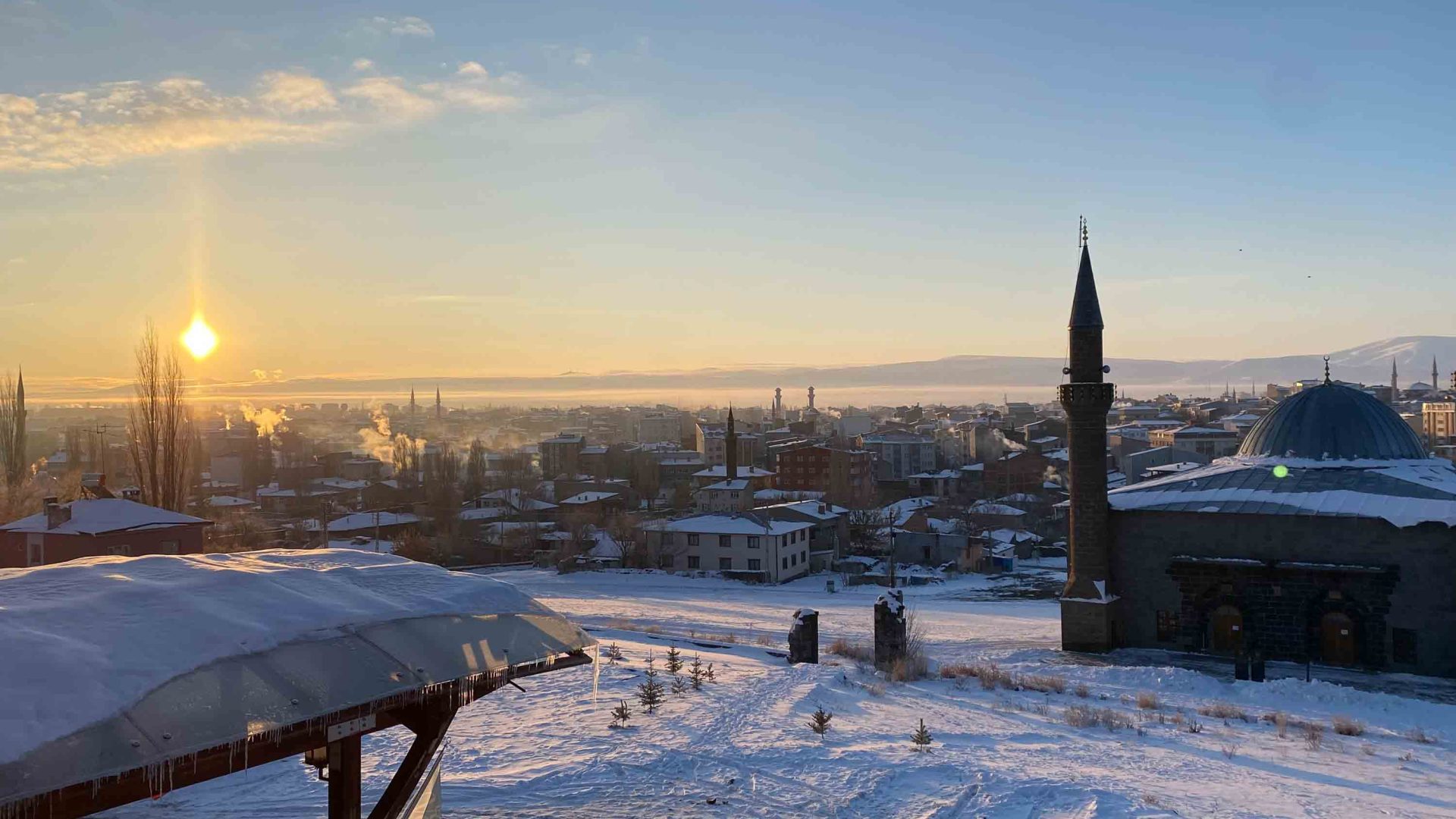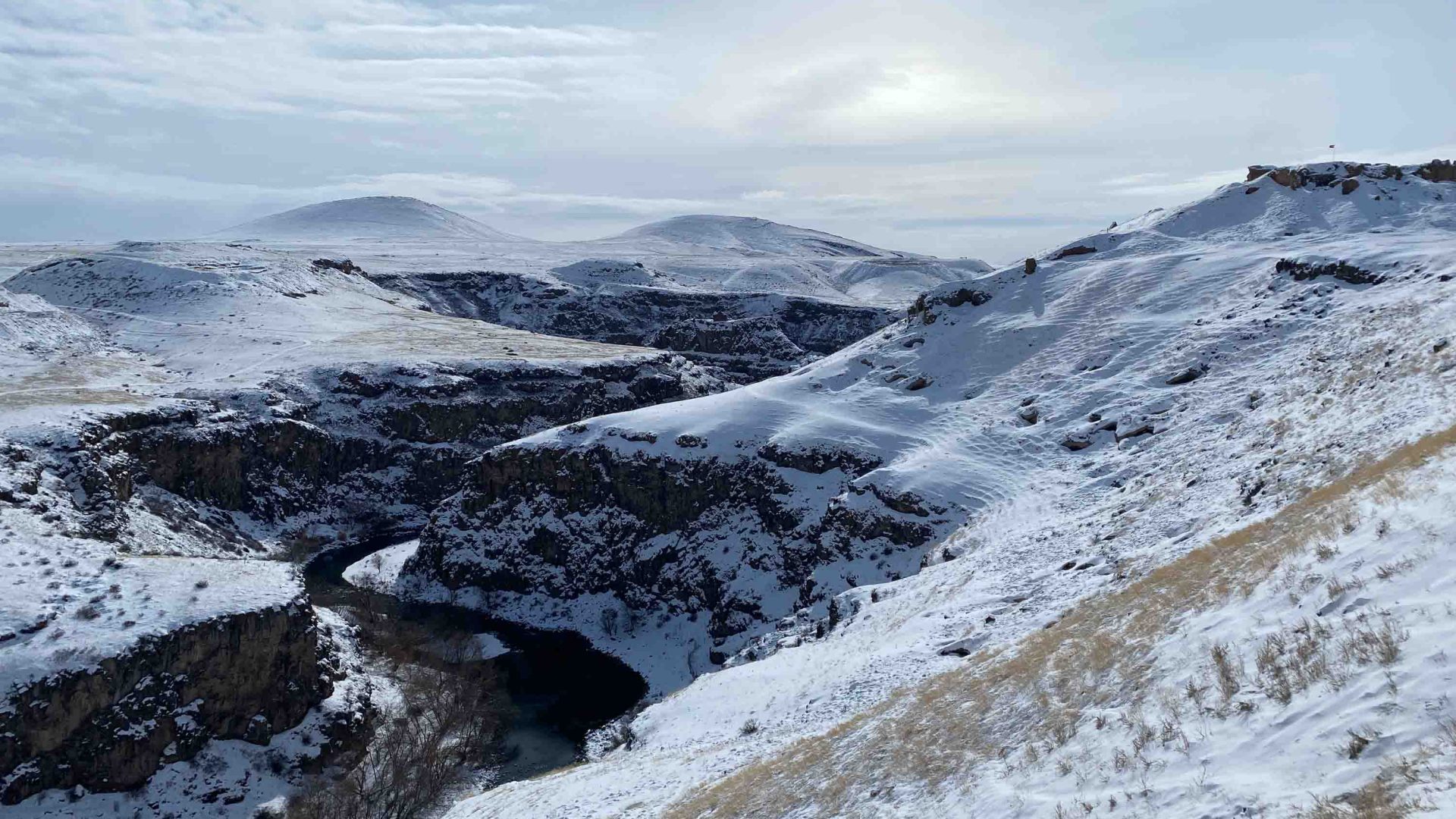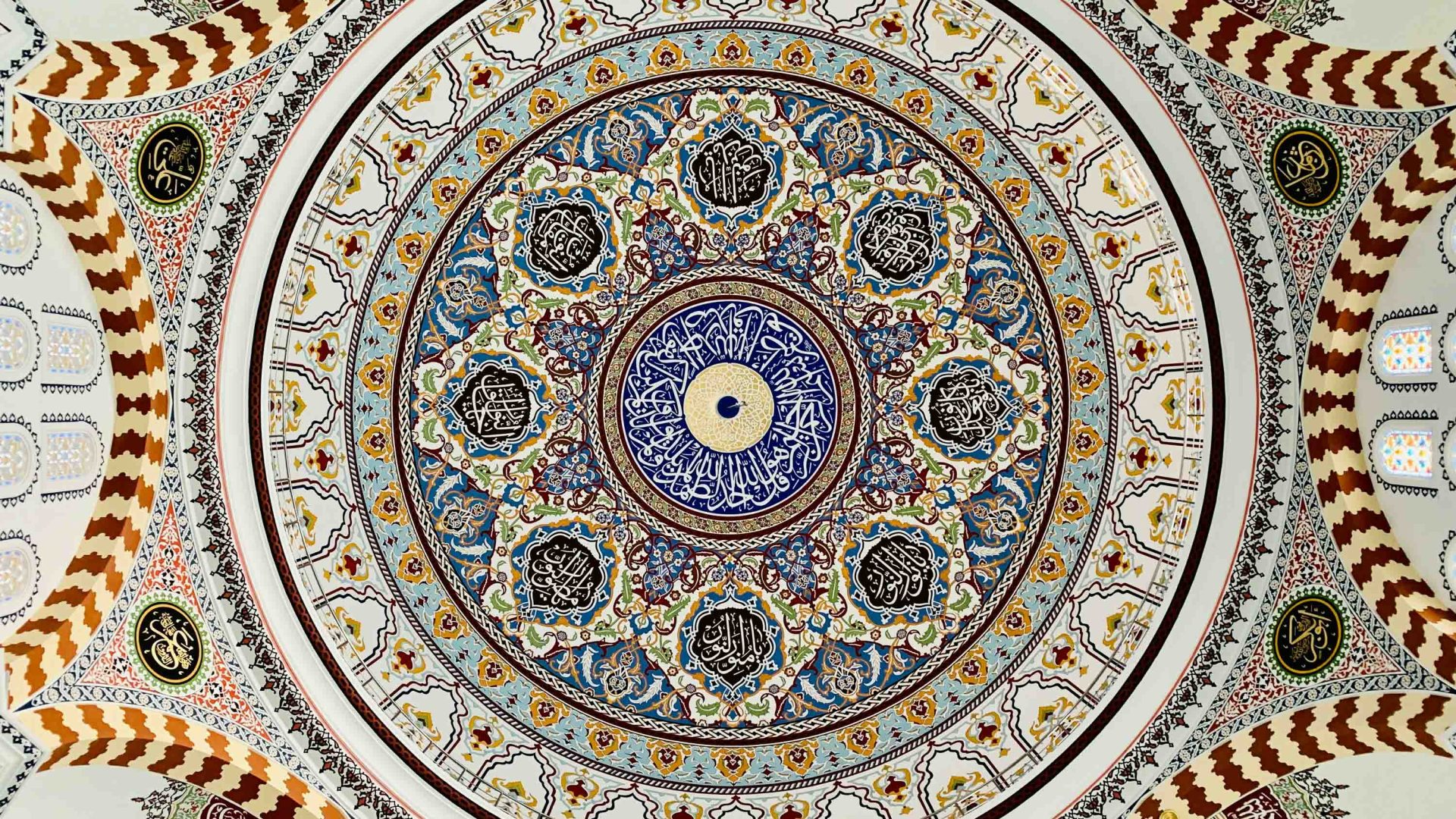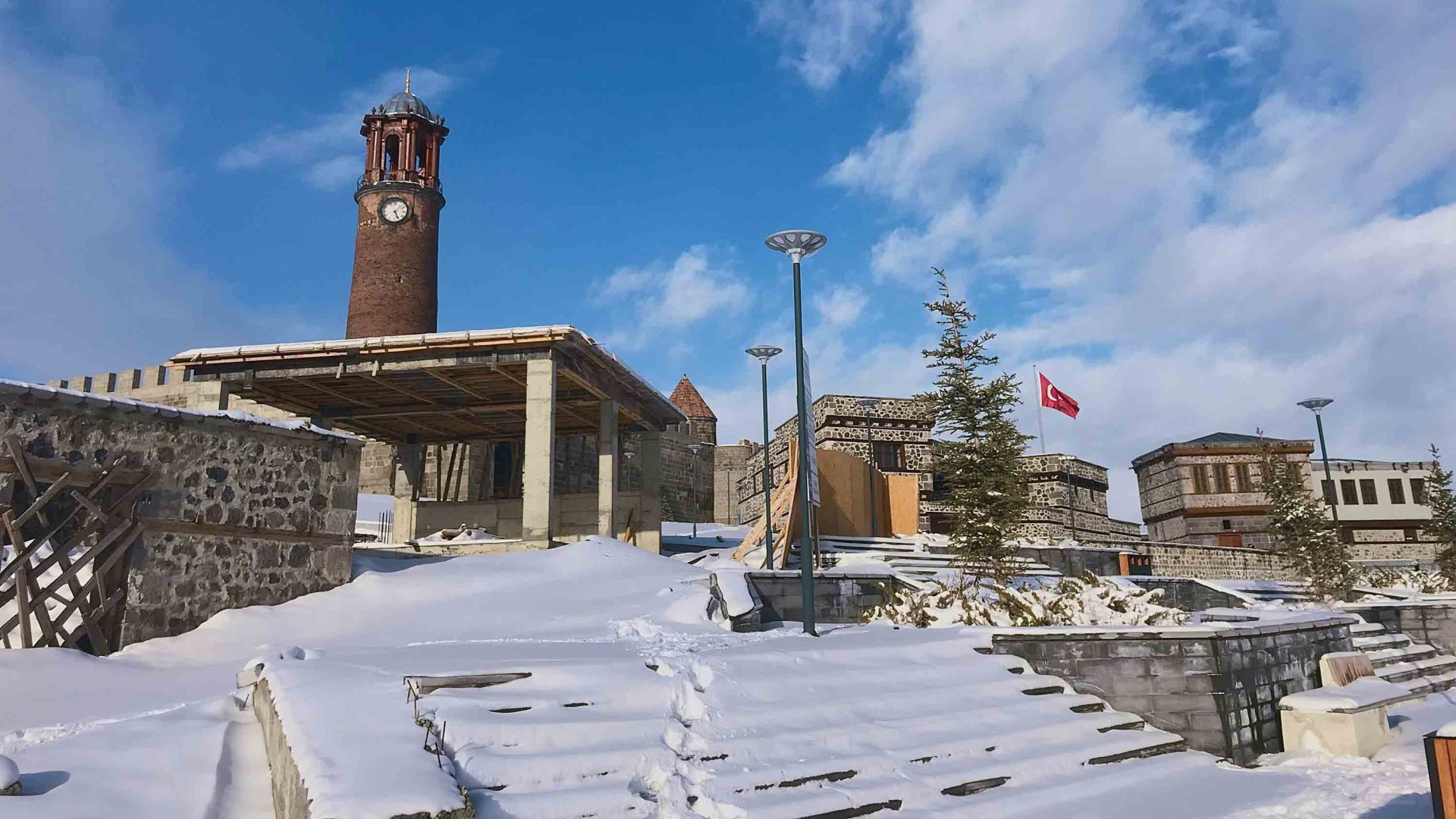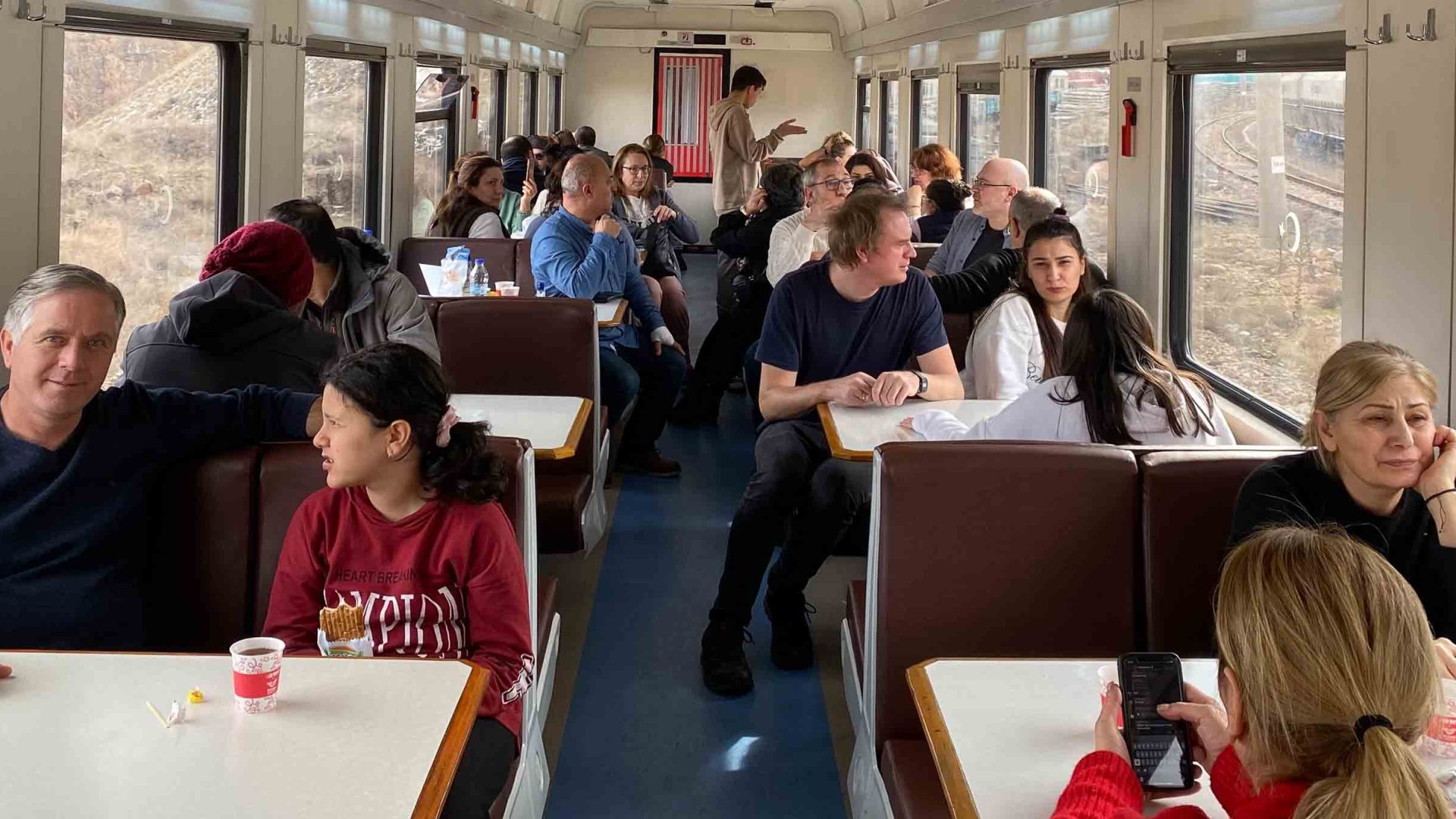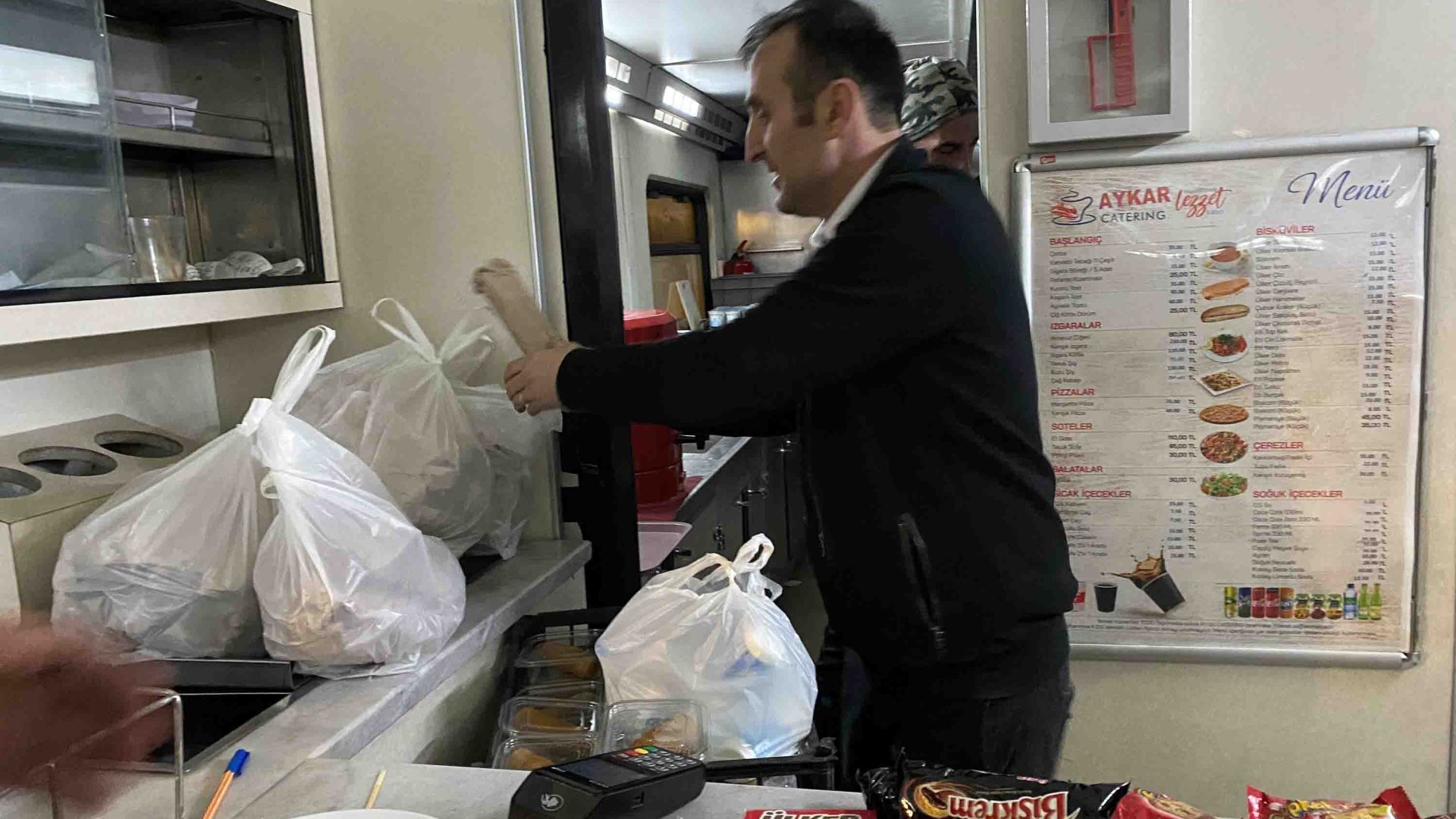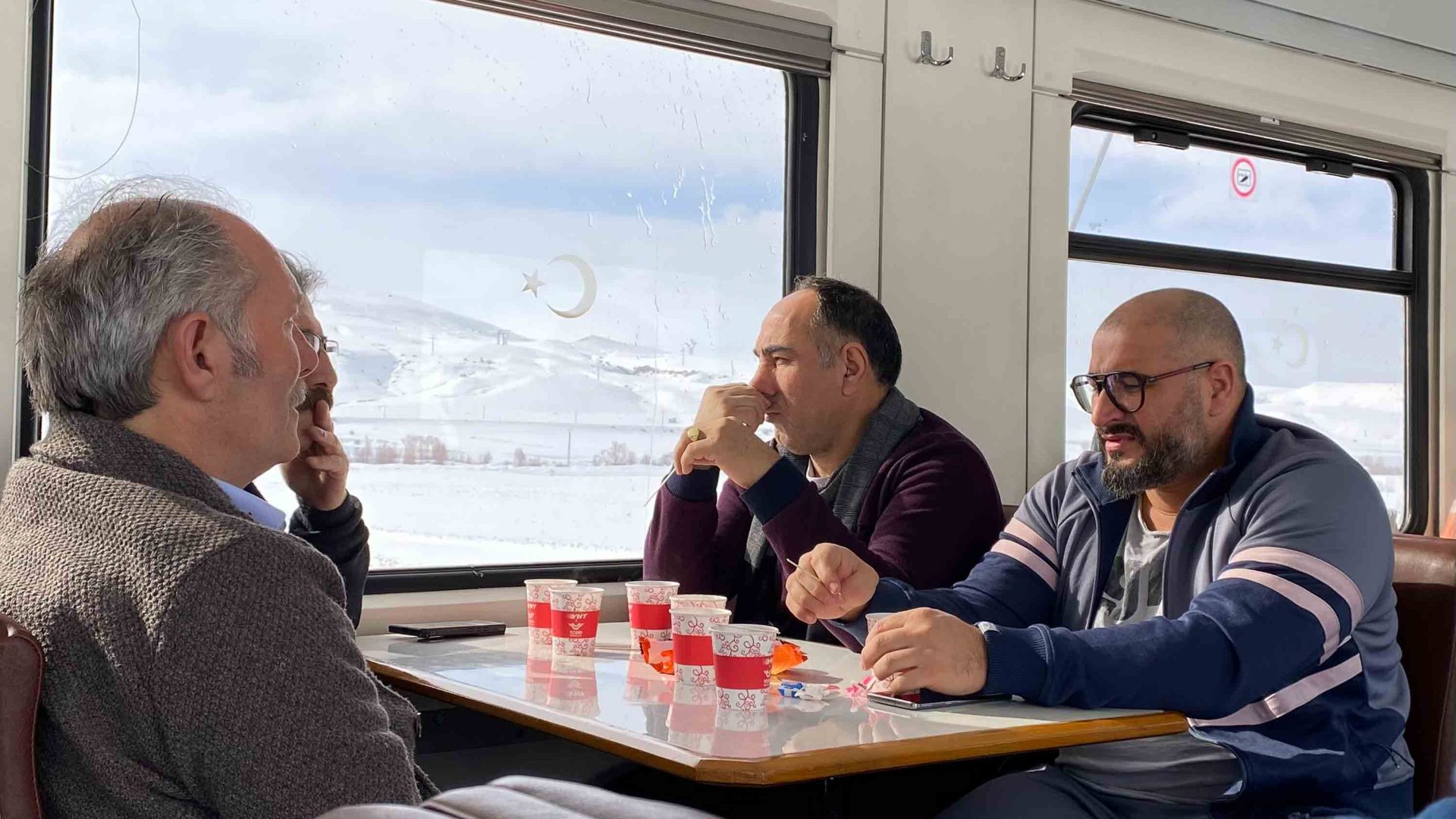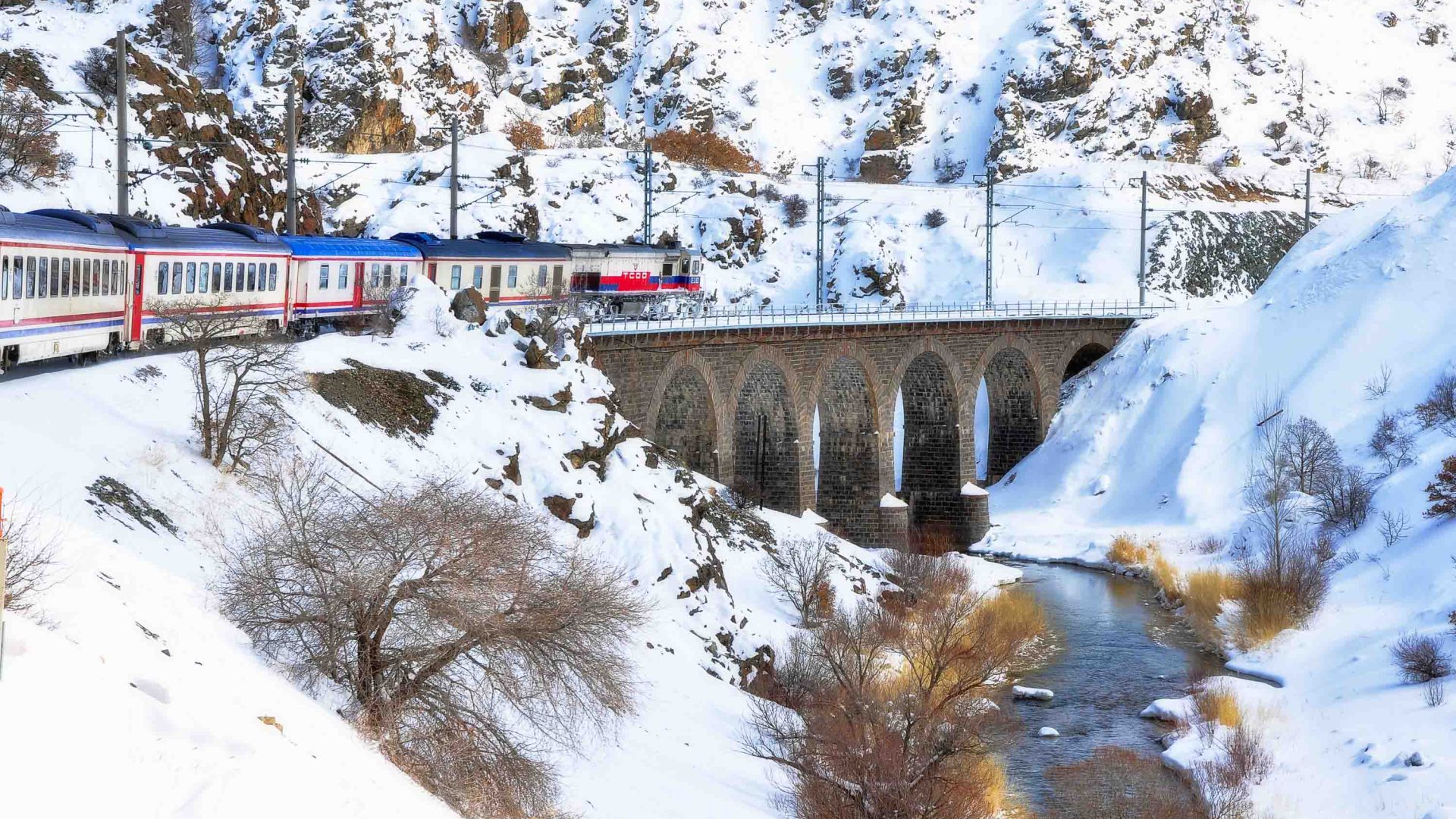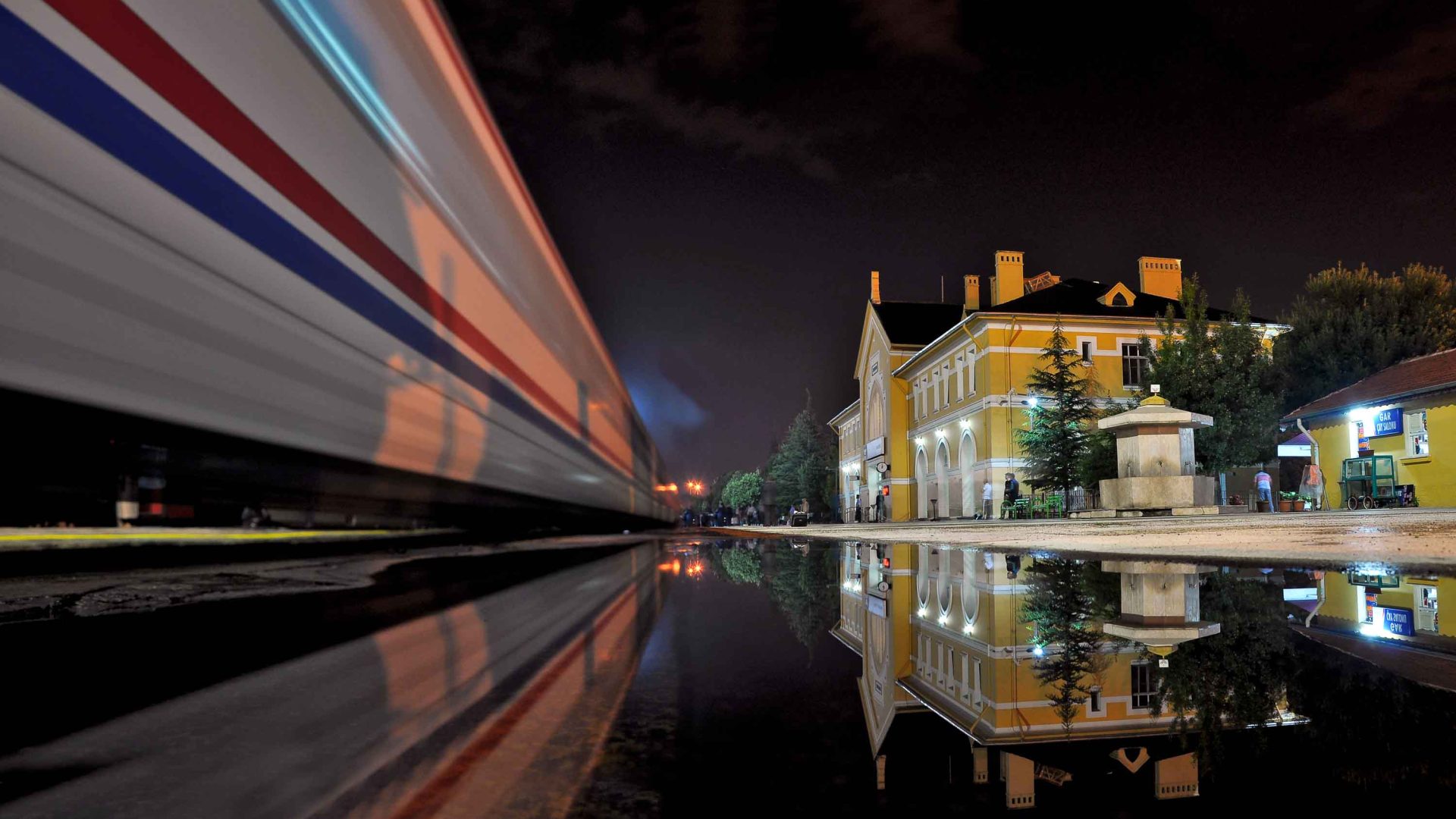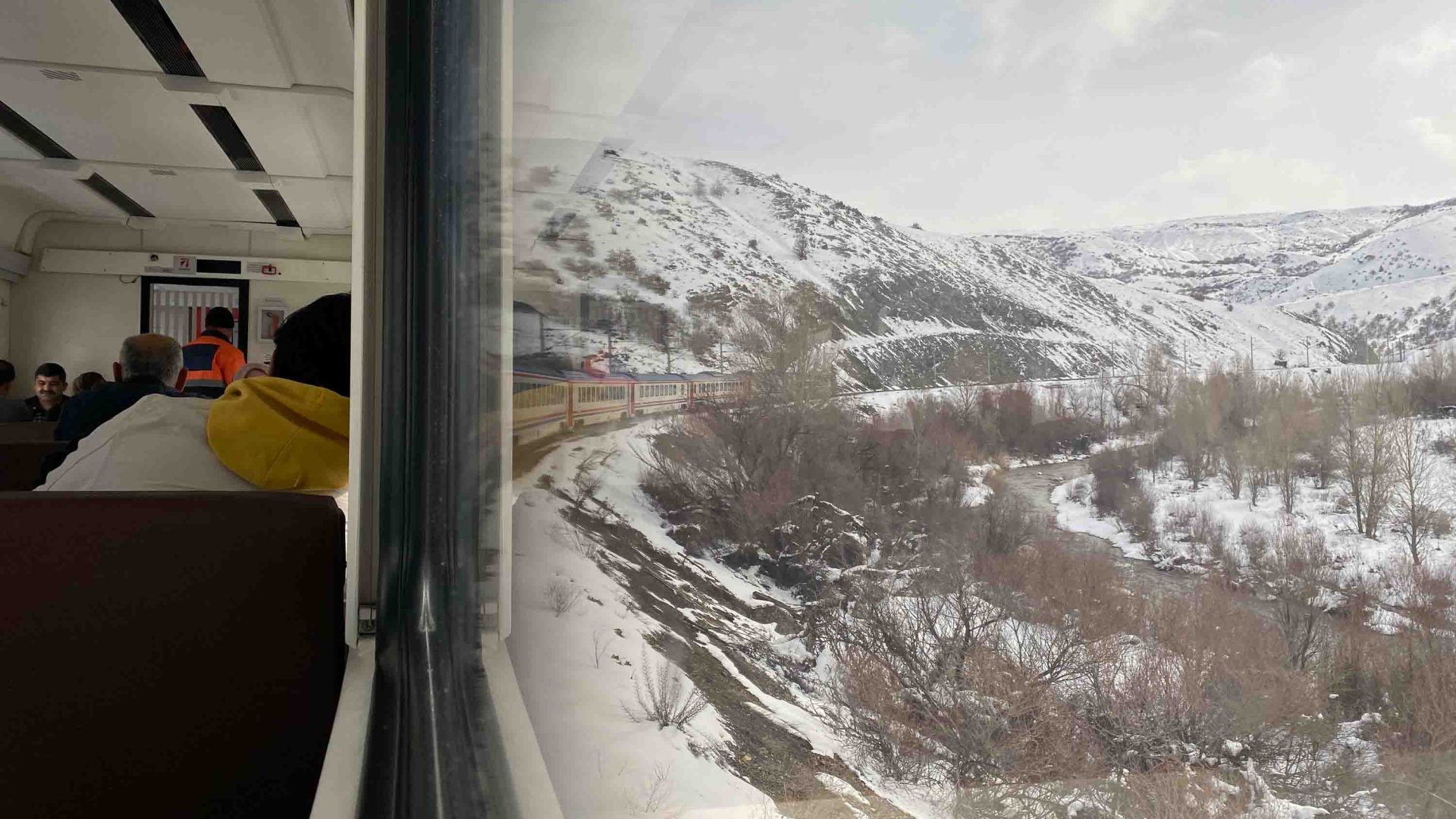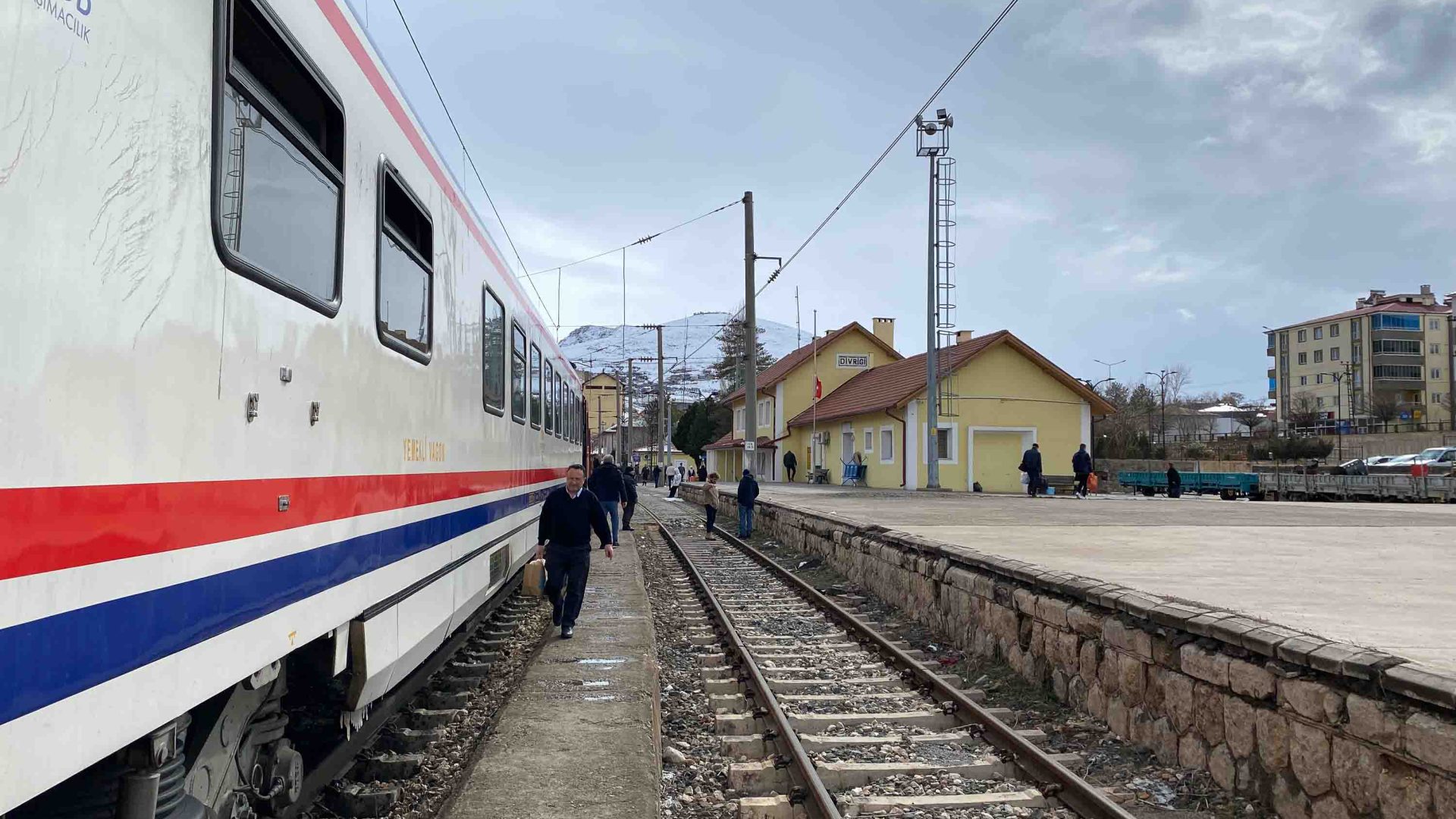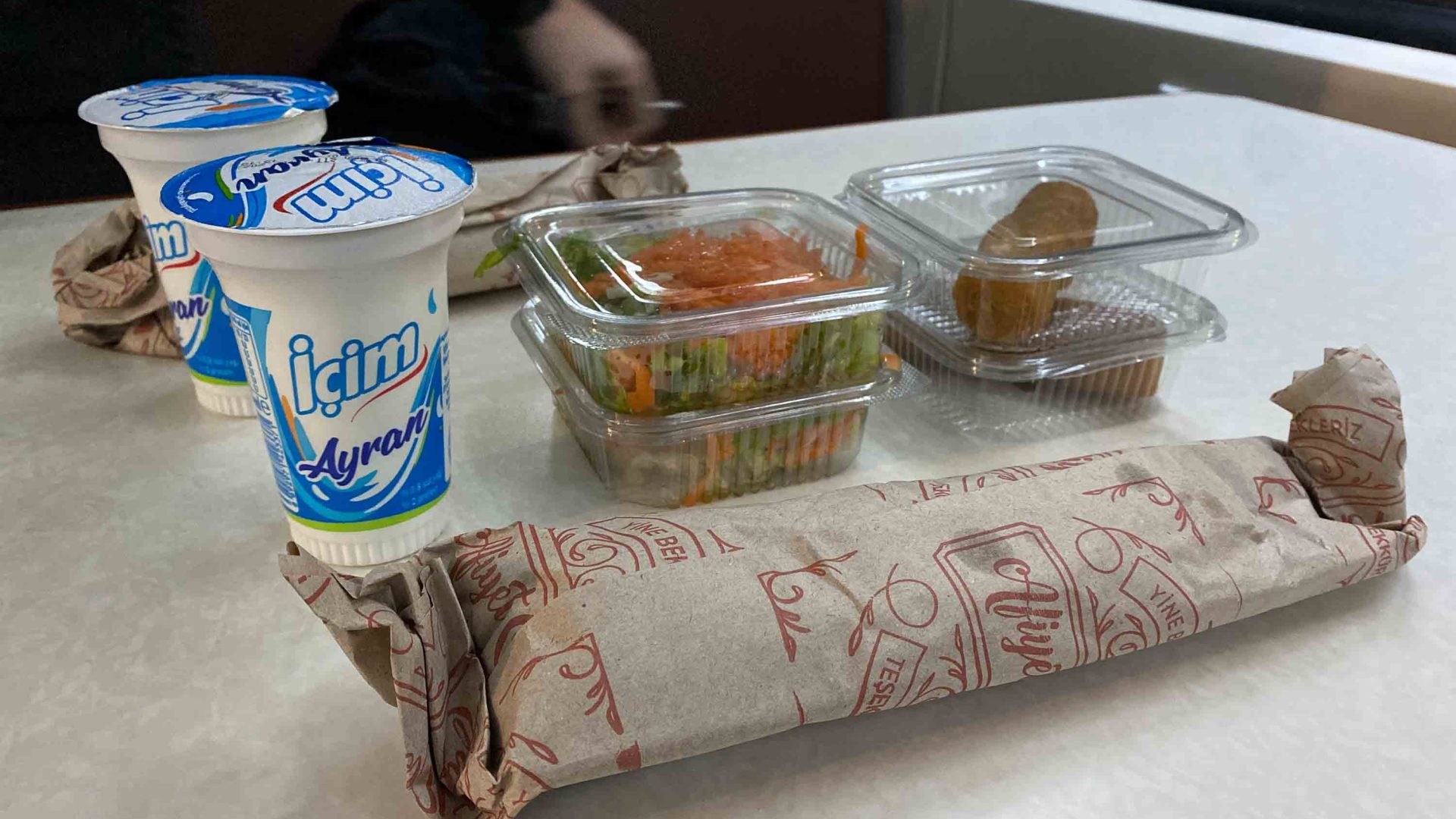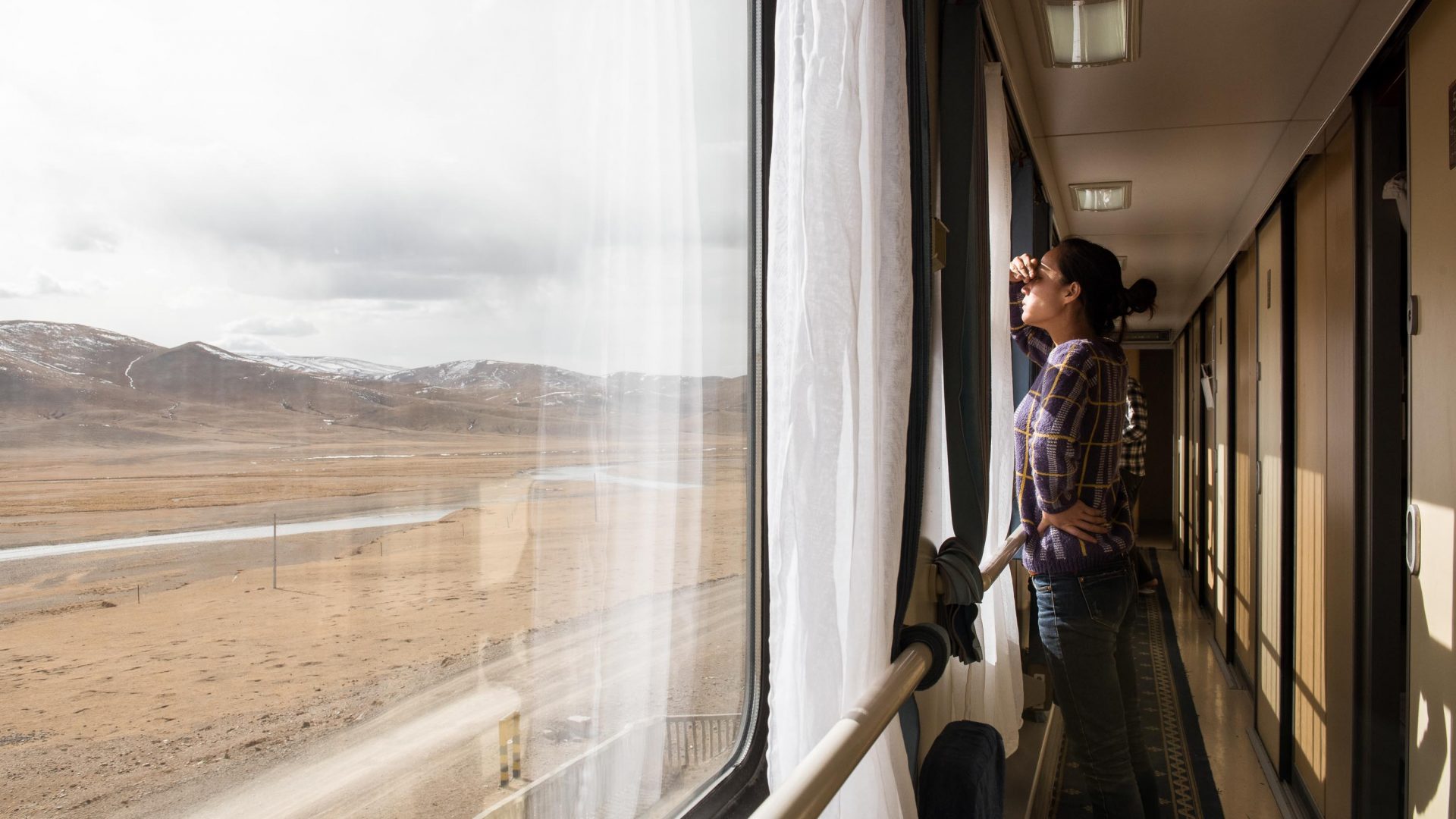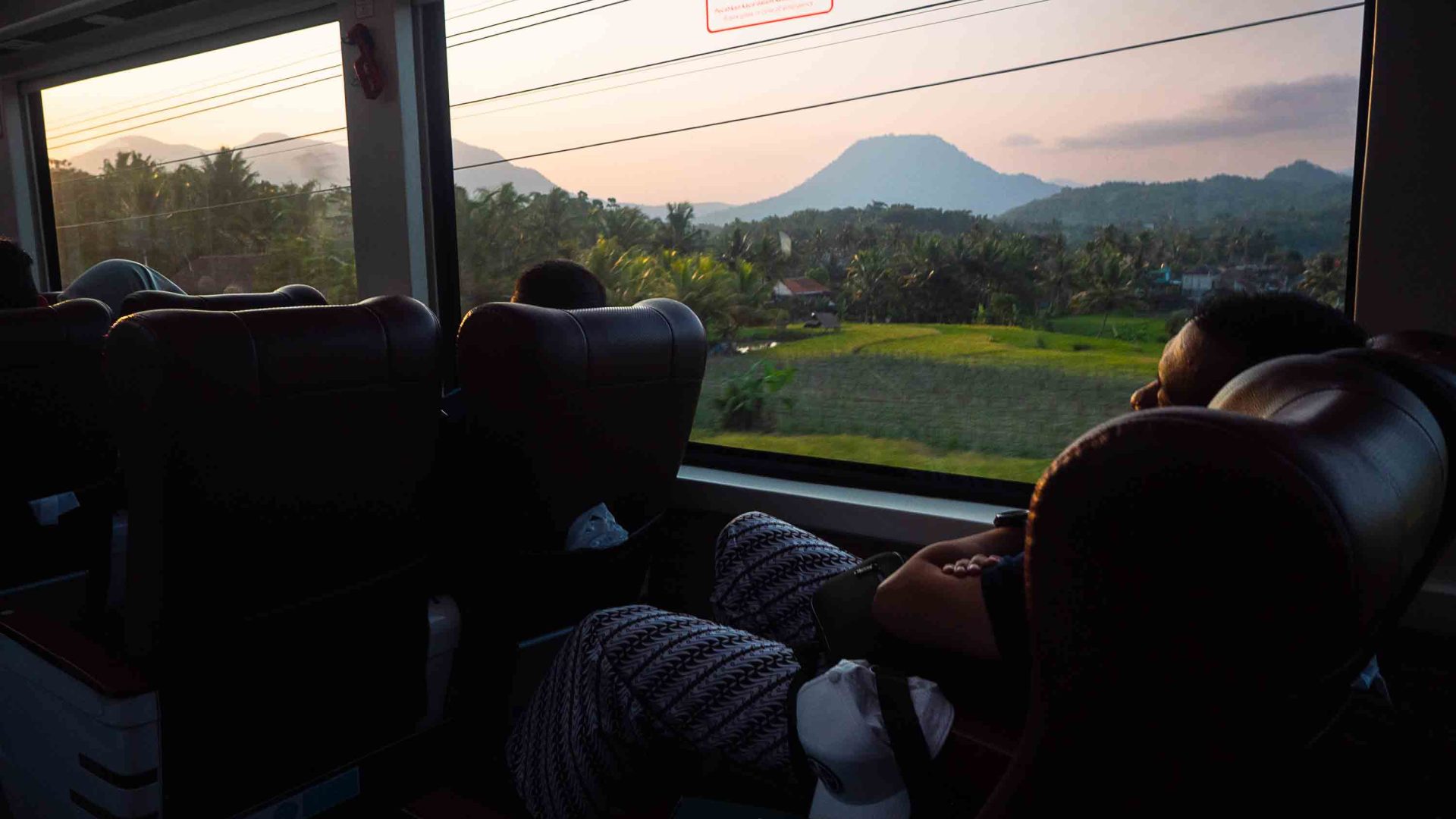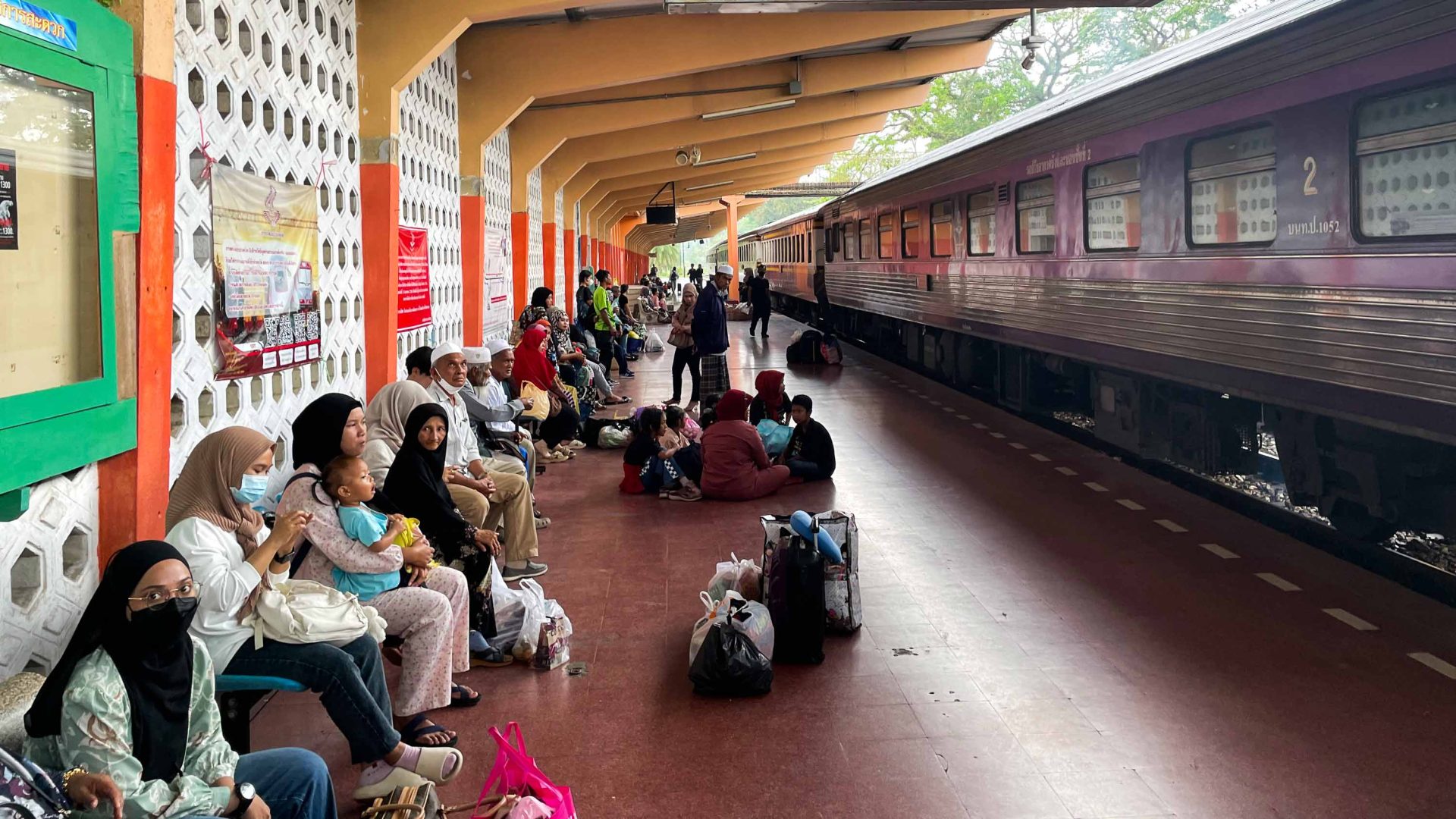It’s shortly before 6pm and the train glides out of Ankara’s Art Deco station while a pair of twentysomethings run alongside, filming our departure. Like a local celebrity, the sleeper service has attracted a handful of fans who are still lingering on the platform, waving while holding up signs with the train’s Turkish name on: ‘Doğu Ekspresi’.
Giggles and yelps come from the adjoining compartment, and as the wheels settle into a steady thump, I poke my head round to find two young Turkish women engaged in what looks like a séance. This is no quick-fix train dinner; they’ve set up an atmospheric dinner party for two. A flickering candle the size of a small tree stump, surrounded by open boxes of pistachio baklava, cold cuts and triangles of meaty börek.
Originating in the Turkish capital, the Doğu Express—meaning Eastern Express—takes 26 hours to cover 800 miles (1,287 kilometers) across Türkiye’s mountainous terrain of Anatolia, stopping at 52 stations and ending in the northeastern city of Kars. Lying just 30 miles (48 kilometers) from the Armenian border, which remains closed—owing, in part, to the Turkish government’s refusal to recognize the Armenian genocide (1915-16)—Kars is a walkable city steeped in Roman, Byzantine and Ottoman influence, surrounded by nature, and noted for its honeycombed gravyer cheese and roasted goose-meat on bulgur pilaf.
Kars is also a gateway to the medieval city of Ani which now lies in a panoramic sprawl of ghostly ruins, bordered by the Akhurian river. And it’s this UNESCO World Heritage Site city of hollowed-out cathedrals, echoing chapels, crumbling minarets, and surrounding snow-covered steppes that are the lure for many on board this evening.
